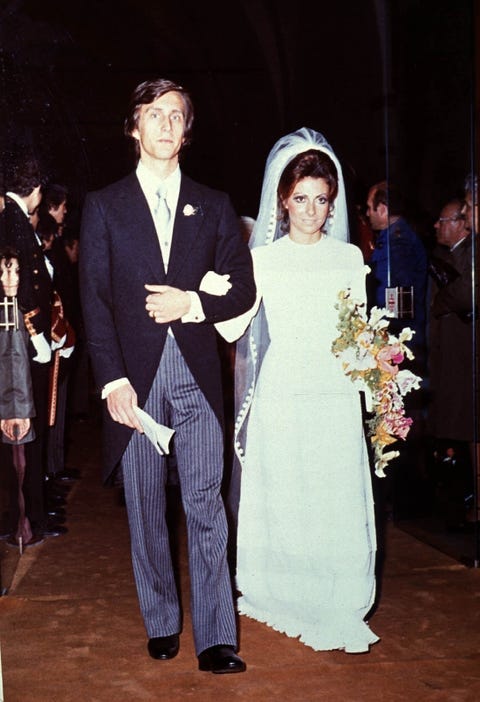
As House of Gucci begins its much-anticipated worldwide cinema release this week, family members and Gucci faithful have criticised its historical accuracy, poor casting choices and costume design.
Gucci descendants claim the Sir Ridley Scott film, based on the book The House of Gucci: A Sensational Story of Murder, Madness, Glamour, and Greed by Sara Gay Forden – which centres on the love story between Patrizia Reggiani (Lady Gaga) and heir Maurizio (Adam Driver) – rewrites their family history, including the unravelling of their divorce.
In a scathing statement provided to Italian news agency ANSA, of which Variety has a copy, the family says “the production of the film did not bother to consult the heirs before describing Aldo Gucci – president of the company for 30 years [played by Al Pacino in the film] – and the members of the Gucci family as thugs, ignorant and insensitive to the world around them”.
The family said the film adopted an “indulgent tone” in its portrayal of Milanese social climber Patrizia, describing the reconstruction of her as “objectionable … as a victim who was trying to survive in a masculine and macho corporate culture”.
“This couldn’t be further from the truth.
“This is extremely painful from a human point of view and an insult to the legacy on which the brand is built today,” the statement read.
Former Gucci designer Tom Ford – who knew Maurizio well – also opined in an essay over the Thanksgiving weekend for Air Mail, saying “somehow I felt as though I had lived through a hurricane when I left the theatre”.
“Was it a farce or a gripping tale of greed? I often laughed out loud, but was I supposed to?” he mused.
In response, in an exclusive interview with Total Film on November 29, Scott (Alien, Thelma and Louise, American Gangster) hit back, saying their reaction was “alarmingly insulting”.
“I tried to be as respectful as possible by being as factual as possible, and as factual as we can possibly imagine.
“In the [screen] adaptation, you have to take some liberties with time and space, because a lot of the stories actually stretch out between her divorce and his demise.
“It was six years. In that six years, there was a lot of relentless pursuit by her of him. I don’t know how he didn’t get some kind of injunction to stop her from bothering him.
“So you have to play with time and space to make the story work. As the film stands right now, it’s roughly two-and-a-half hours, and which is longish for any film today, but I think it holds up in its evolution very well,” he says, with 13 of his 26 films winning nine Oscars, nine BAFTAs and five Golden Globe awards between them.

True crime of fashion
What really happened when Maurizio met Patrizia? The Gucci dates you need to know:

1970
Maurizio Gucci is 22 and one of the most eligible bachelors in Italy when he meets Patrizia Reggiani. The relationship causes a rift between Maurizio and father Rodolfo. The pair don’t speak for years. Maurizio and Patrizia marry in 1972, despite his father’s demand to the cardinal of Milan to halt the wedding.
1983
Maurizio and his father reconcile in the intervening years and when Rodolfo dies in 1983, he leaves his only son the greatest gift: a majority stake in the luxury Gucci brand.
1985
In May, Maurizio packs another suitcase, this time to leave Patrizia. Patrizia becomes suicidally depressed.
1995
On March 27, Maurizio Gucci is shot four times on the red granite steps of his office in Milan. Investigators assume his death is related to a business deal got horribly wrong. It’s not until January 1997 that an anonymous tip-off points the finger at his ex-wife.
1997
The trial of Patrizia Gucci and her accomplices causes a sensation in Italy. On the witness stand, Patrizia still rages about how she hadn’t received enough in her divorce settlement. On November 3, 1998, she is found guilty and sentenced to 29 years in prison.
2016
Released in 2016, at age 67, she shops on Milan’s version of Rodeo Drive dripping in jewellery and with a live parrot perched on her shoulder. She complains she isn’t allowed to meet her grandchildren. “I still feel like a Gucci,” she tells La Repubblica. “In fact, the most Gucci of them all.”
Key moments of fact or fiction
Casting choices?
Guccio Gucci’s great-grandchild Patrizia Gucci called out the casting of Al Pacino as Aldo Gucci, saying, “my grandfather was a very handsome man, like all the Guccis, and very tall, blue eyes and very elegant.
“He is being played by Al Pacino, who is not very tall already, and this photo shows him as fat, short, with sideburns, really ugly. Shameful, because he doesn’t resemble him at all.”
Ridley’s response: “The people that were writing from the family to us at the onset were alarmingly insulting, saying that Al Pacino did not represent physically Aldo Gucci in any shape or form.
“And yet, frankly, how could they be better represented than by Al Pacino? Excuse me! You probably have the best actors in the world, you should be so f––king lucky.

She also didn’t like Jared Leto portraying Paolo Gucci, and how he was styled with “unkempt hair” in a lilac corduroy suit.
“Horrible, horrible,” she said. “I still feel offended.”
Adds Ford: “At times, when Al Pacino, as Aldo Gucci, and Jared Leto, as Aldo’s son Paolo Gucci, were on-screen, I was not completely sure that I wasn’t watching a Saturday Night Live version of the tale.”
Ridley’s response: “The story, in a funny kind of way, it’s a satire. And, therefore, satire is really a posh way of saying it’s a comedy. And I think a lot of it is comedic. Certainly for the first two acts.
“Jared Leto, there’s not a lot of information about [his character] Paulo, but there are pictures of Paulo and that’s exactly what Paulo looks like.
“We found the pictures and Jared did what he did and dressed the way Paulo dressed”.

Patrizia’s working life
According to entertainment website Screen Rant, the film shows Patrizia walking to work “which would have been her father’s transport company, where she worked as an accountant”.
However, “upon being offered a pardon from prison on a work-release program in 2011, Reggiani told the judge, “I’ve never worked in my life; I won’t start now.”
“The true story is that Reggiani had been rather spoiled her whole life and, according to her own words, had never held a job,” says the website.
Patrizia and Maurizio’s love life and children – not one but two
In the movie, Patrizia mistakes the fashion heir as a bartender after being invited to a birthday party in 1970 when in reality, she really knew exactly who he was that night.
The film also shows Patrizia writing her number on the windscreen of his Vespa in lipstick. This didn’t happen.
Only one child is mentioned in the film, Alessandra, who was born in 1976. Their second child, Allegra, doesn’t appear.
And when divorce papers were filed, they were not outside school pick-up, as depicted in the film.

Gucci’s ‘inclusive’ business practices
While the Gucci family maintains the film portrays the Gucci fashion house as a “chauvinist corporate culture”, it says that during the 70-year time span when the Gucci company was a family business, it was “an inclusive company”.
“Indeed, precisely in the 1980s – the historical context in which the film is set – women were in several top positions: whether they were members of the family or extraneous to it, these included the president of Gucci America, the Head of Global PR & Communication, and a member of the board of directors of Gucci America,” the Gucci statement reads.
Was it a handbag or fashion show interrupted by police?
Minor details also seem to be dividing critics. Aldo’s son Paolo gets his promised fashion show to turn to the dark side.
“The true story is that it wasn’t a fashion show that was stopped like in House of Gucci but a handbag launch,” explains SR.

Where does Patrizia meet Pina the psychic?
In the movie, Patrizia calls a hotline and speaks to Pina Auriemma (Salma Hayek), a TV fortune teller, establishing their first contact.
That’s not correct. Patrizia, along with Maurizio, first met Pina in Ischia while on vacation, according to Forden’s book.
“The true story is changed for the movie but in real life, Patrizia and Pina had been longtime friends before organising the meeting for the hit to be placed on Maurizio Gucci, booking Ivano Savioni and Benedetto Ceraulo as hitmen,” says Screen Rant.
Maurizio’s murder location
At the end of the film, Maurizio is gunned down in Rome while riding a bike.
“The true story changed for House of Gucci is that he was gunned down over the steps of his office building, and it happened in Milan. Moreover, on the day the hit took place, Patrizia’s diary had only one entry that said “paradise” in Greek, rather than Italian, as the movie showed,” says SR.
The post Fact or fiction in Ridley Scott’s <i>House of Gucci</i> appeared first on The New Daily.
Powered by WPeMatico






